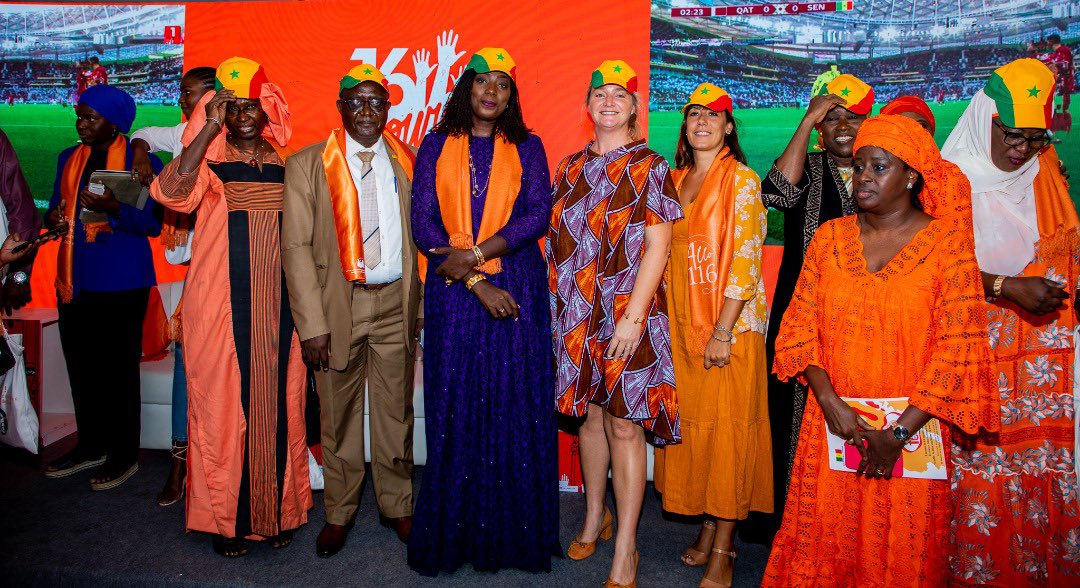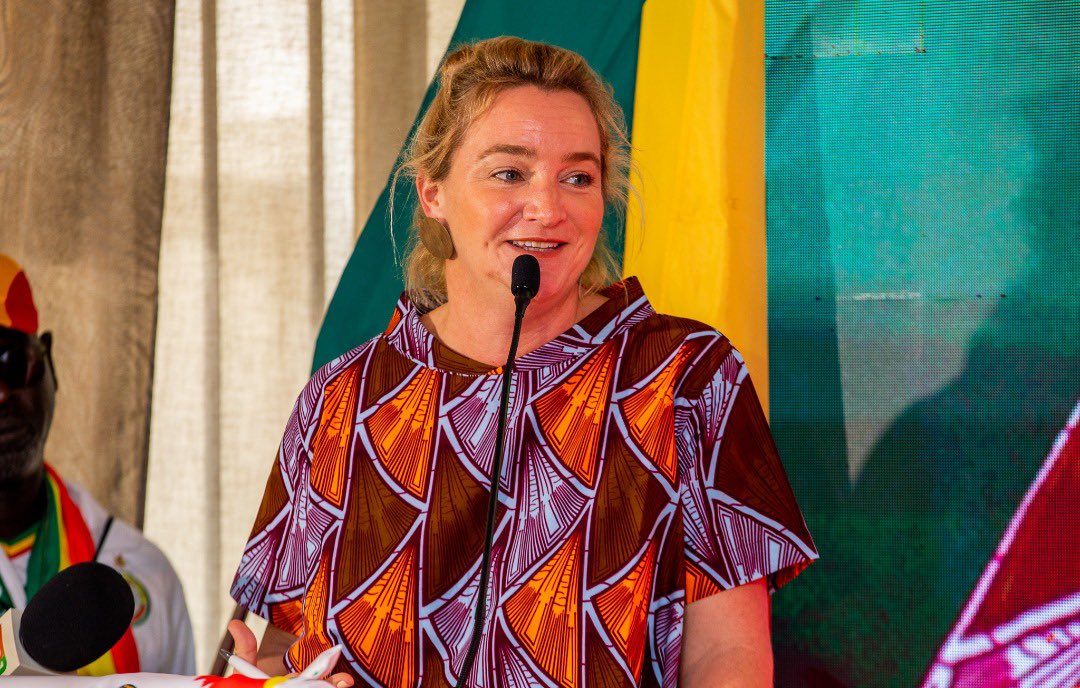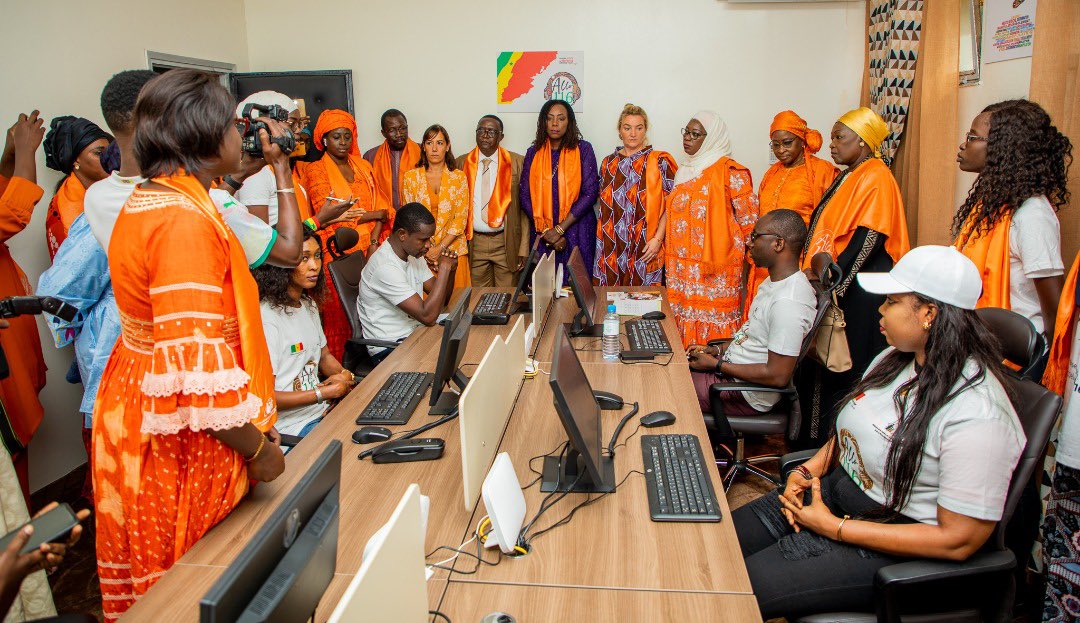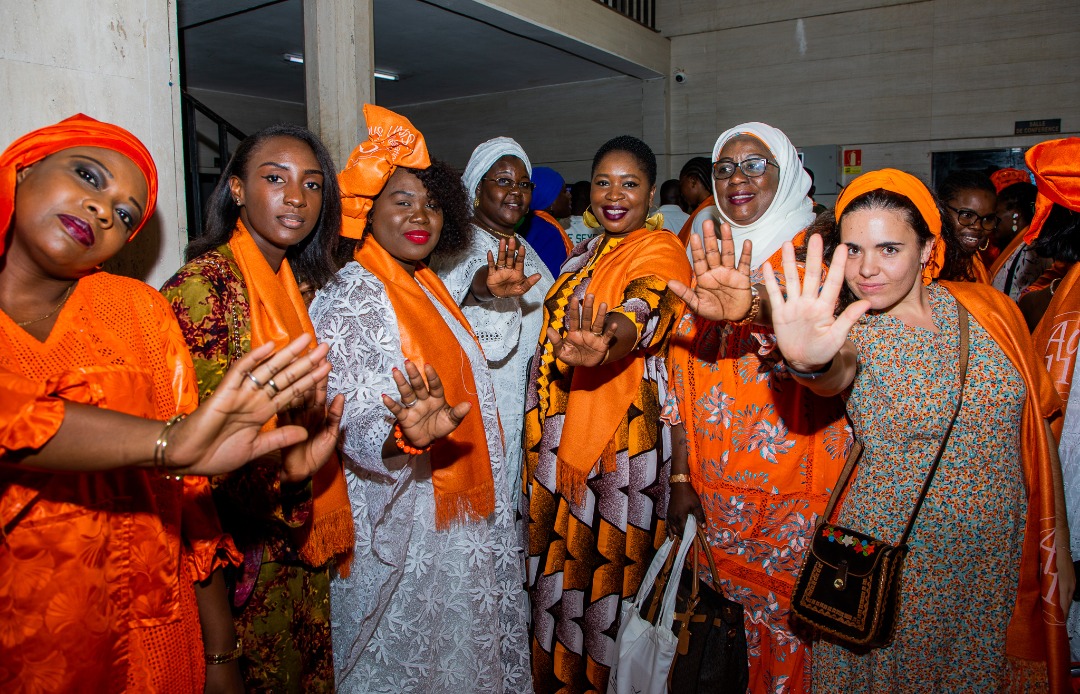16 Days of Activism 2022 Campaign in Africa: UN Women and its partners wish to stimulate action across the continent and salute the efforts of activists fighting to end violence against women and girls
16 Days of Activism 2022 Campaign in Africa: UN Women and its partners wish to stimulate action across the continent and salute the efforts of activists fighting to end violence against women and girls
Date:

Dakar, 25 November 2022
UN Secretary-General annual 16 Days of Activism against Violence towards Women and Girls campaign kicks off each year on 25 November, which is the International Day for the Elimination of Violence against Women, and runs until 10 December, Human Rights Day. During the campaign, which distinctive color is orange, a multitude of events are organized around the world to accelerate efforts to end violence against women and girls. As the other regions of the world, West and Central Africa will be actively involved. Under this year's theme " UNITE, Activism to end violence against women and girls", a call is made to governments, partners, and all citizens to show solidarity with women's rights movements and activists. On this occasion, everyone is invited to join the global momentum to end violence against women and girls once and for ever. The campaign aims to condemn the increase in anti-feminist hate speech, the shrinking of civil society space, the many threats to women's rights defenders and, in general, the backlash against the space for women's rights organizations to lead change.
Ms. Florence Raes, Regional Director a.i for UN Women West and Central Africa states in this context that: "UN Women's ambition is to raise awareness in the sub-region on its different issues, namely the fight against GBV during the 16 days of activism, to increase synergies, regional cooperation while providing efforts to achieve the creation of shared agendas with stakeholders working on the elimination of GBV which is a priority for UN Women and its partners”.

To this end, the UN Women Regional Office for West and Central Africa is organizing and supporting several activities in the region:
- The Forum of Women's Movements for the Elimination of GBV in West and Central Africa in Abidjan, from 7 to 8 December 2022. The meeting aims to strengthen the common regional agenda of women's movements in the West and Central Africa region and to celebrate women's movements and women activists through the organization of an exhibition dedicated to them.
- The Forum with traditional leaders as actors of change to end violence against women in Douala, Cameroon from 15 to 16 December 2022, in partnership with MUSKOKA Funds. This forum aims to contribute to changing social norms for the elimination of early marriage and female genital mutilation (FGM) in Central and West Africa and to contribute to improving the reproductive health of mothers, newborns, children, and teenagers.
Alongside the Ministry of Women, Family and Child Protection of Senegal, the launch of the listening, guidance and information platform on Gender-Based Violence (GBV), on 25 November 2022, as well as the inauguration of a Departmental Centre for Assistance and Training for Women (CEDAF) in Oussouye, in the south of Senegal.

Despite satisfactory progress, West and Central Africa still struggling with harmful practices for women and girls
Despite the significant actions of governments, women's movements and activists, violence is still a reality in the region and must be addressed.
- More than one out of three women (36.6%) in Africa reports having experienced physical and/or sexual violence from a partner or sexual violence from a non-partner.
- Child marriage is particularly problematic in West and Central Africa, which has 6 of the 10 countries with the highest levels of child marriage prevalence in the world.
- At least 200 million women and girls, between 15 and 49 years old, have undergone female genital mutilation in 31 countries where the practice is highly practiced. In sub-Saharan Africa, 1 out of 4 women or girls have undergone FGM.
- Breast ironing, an archaic practice, is still widespread in Cameroon, where 1 out of 4 girls is said to be affected. This ancestral cultural phenomenon is also present in other Central and West African countries, such as Chad, Togo, Benin and Guinea.
In view of these worrying figures, there is a need to focus on basic prevention by addressing the deep-seated causes of such violence
To mark the 16 Days of Activism, a new study released by UNODC and UN Women shows that in 2021, on average, more than five women or girls were killed by someone in their own circle every hour. The report, released on the eve of the International Day to End Violence against Women - commemorated on 25 November - is a stark reminder that violence against women and girls is one of the most common human rights abuses in the world.
Of all the women and girls killed intentionally last year, about 56 percent were killed by an intimate partner or another family member (45,000 out of 81,000), showing that the home is not even a safe place for many of them. In comparison, only 11 percent of homicides against men occur in the private sphere.
Ms. Sima Bahous, Executive Director of UN Women reports: "Every femicide statistic is just a story of a woman or girl that life has not favored. But these losses can be prevented - and the tools and knowledge to do so already exist. Women's rights organizations are already analyzing the data and advocating for policy change and greater accountability. What we need now is concerted action involving all of society that will enable women and girls to feel safe, in their homes, on the streets, and wherever they are, and to truly be safe."
But disparities also exist at regional levels: while femicide is a problem in every country in the world, the report shows that in absolute numbers, Asia recorded the highest number of sex-related murders in the private sphere in 2021, and that the chances of women and girls being killed by their intimate partner, or any other family member were highest in Africa. In the same year, the rate of gender-based private crime was estimated at 2.5 per 100,000 women in Africa, compared to 1.4 in America, 1.2 in Oceania, 0.8 in Asia and 0.6 in Europe. At the same time, the evidence suggests that the onset of the COVID-19 pandemic in 2020 coincided with a notable increase in gender-based private crime in North America and, to some extent, in Western and Southern Europe as well.
However, gender-based crimes, as well as other forms of violence against women and girls, are not inevitable. They can and must be prevented, and this requires a combination of measures: identifying women victims of violence at the earliest possible stage; providing them with access to adequate support and protection; and ensuring that law enforcement and justice systems are more responsive to their needs. Efforts should also be directed at basic prevention by addressing the fundamental causes of such violence, including changing harmful forms of masculinity and social norms, addressing structural gender inequalities, and ending gender stereotypes. It is also critical to compile more data on femicide to inform the development of policies and programs to prevent and end violence against women and girls.

Media Contacts :
Hawa S. Diop, Regional Communications Specialist, UN Women West and Central Africa/ hawa.diop@unwomen.org/+221773262082
Kadiatou Boiro, Communications Analyst, UN Women West and Central Africa /kadiatou.boiro@unwomen.org